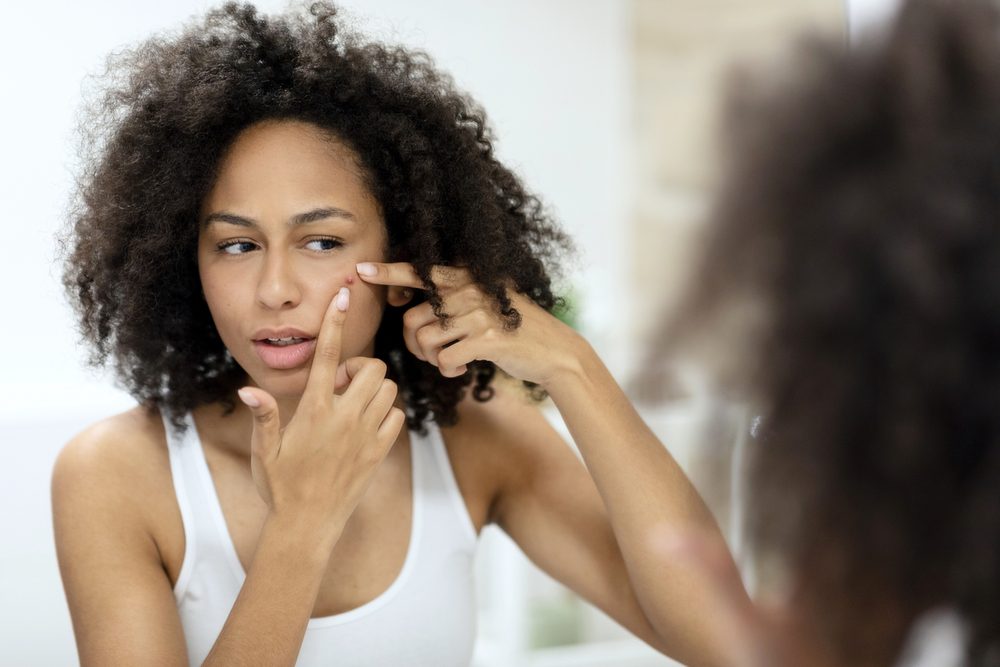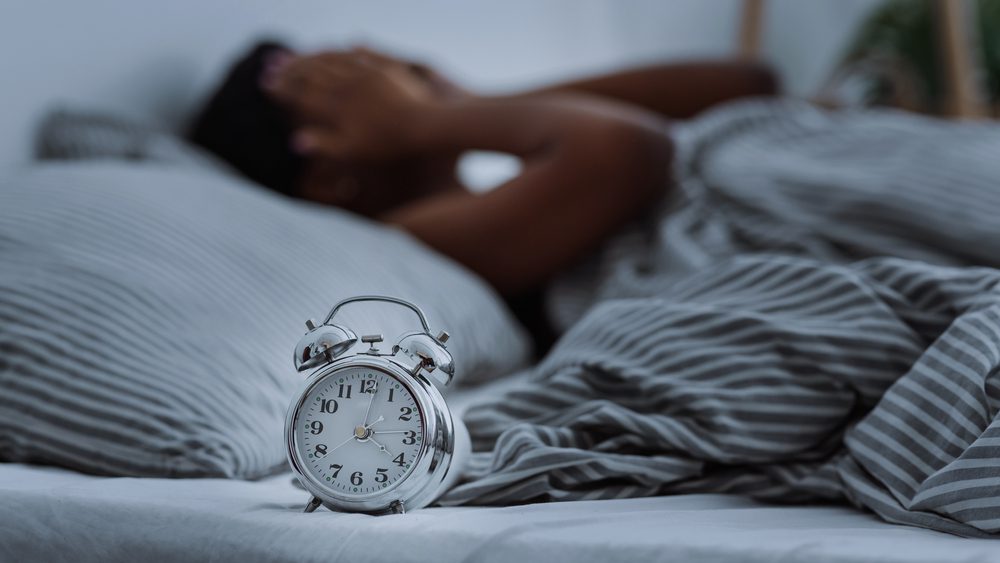Everywhere you look nowadays, you see tired faces. That may be because of the health crisis we had to deal with. The coronavirus pandemic was exhausting.
Are you one of those people that looks tired all the time? Do you find it increasingly difficult to stop yourself from yawning, even in public?
Even if you’re going to bed at a reasonable time, if your slumber isn’t restful at all, then it’s time to do something about it.
That being said, a lot of people don’t even realize that they’re not getting enough sleep before it’s too late and their health deteriorates.
Because we live in such a fast-paced world, we may miss some of the glaringly obvious signs that we need more rest.
Today, let’s go over 9 signs that you aren’t getting enough sleep.

You Battle Breakouts
Scientists aren’t exactly sure about all the details, but some studies have shown a connection between a lack of sleep and breakouts. This is believed to be caused because sleep controls hormones in our bodies. Not getting enough rest, or sleeping very poorly could disrupt your hormone production.
Not only that but how you sleep also affects your immune system. In terms of too little rest, your immune system could be affected negatively. Your body will then be open to many different issues which it won’t be able to fight off ass efficiently as before.
Make sure you get enough ZZZs if you want clear skin and an efficient immune system.
Your Eyes Don’t Look Good
The eyes are the windows to the soul. But they can also expose whether or not you’re getting enough sleep. Dark circles have long been associated with a lack of sleep, but did you know what puffiness, bags, and redness can also be indicators?
Watch out for these signs in order to avoid lines, wrinkles, swelling, and droopiness, as the chances of developing all of these early are tied to bad sleeping habits.
Again, experts aren’t sure why this is happening, but we have some ideas. During deep sleep stages, our bodies control our hormones and our abilities to repair tissues. The less we rest, the less our bodies are able to regulate these functions.
You Gain Weight
Ever heard of ghrelin and leptin? These two hormones affect how hungry you feel. Without a good night’s rest, your body won’t be able to control them properly. That’s why, over time, lack of sleep can cause you to gain weight.
You might feel the need to eat more often, or generally eat larger portions than you normally would.
Some people might stack up on typically healthy foods, but even if all you eat is clean, if you eat more than you should in large quantities, you’re not actually doing yourself any favors. A better solution would be to try and determine what’s causing you to get less sleep!
You Crave Junk Food
If you’ve just gotten out of bed after a sleepless night and feel the sudden urge to grab a burger and fries, know that this could be caused by a lack of ZZZs. It’s normal for us to crave junk food when we’re sleep-deprived, on top of the fact that, as we said earlier, our hunger hormones may be unbalanced.
But the issue here may go deeper than that. Without sufficient rest, your decision-making isn’t as sharp. Other desires can take over and you’ll have a harder time fighting them.
Try to cut out junk food from your pantry, fridge, and freezer while you’re looking for solutions to get a better night’s slumber.
You Chug More Caffeine
If you regularly drink more than one or even two cups of coffee per day just to stay awake, then join the club. Millions of people are in the same boat. You may feel the need to keep chugging caffeine in order to get through even simple tasks at work.
If you give in to this desire, you may be making the problem worse without even realizing it. While in the short turn, that cup of joe will make you more alert, you may suffer from anxiety or insomnia in the long term.
The same goes for soda, so don’t think that that fizzy drink will be a good alternative for coffee!

You Feel Moody
Feeling moody lately? How’s your sleep?
When, during a study, scientists limited participants to just 4 ½ hours of sleep a night for a week, they found that they were angrier, more stressed, and mentally exhausted. All of those things can have a huge effect on your mood and your personal relationships. You could even become less productive without even noticing at first.
In that same study, scientists noticed how the participants went back to normal once they returned to their normal schedules, showing irrefutable proof between our moods and how many hours we rest per night.
You Feel Depressed
On top of affecting your mood, lack of good sleep could truly affect your mental health in the worst of ways.
We’ve come a long way in understanding what depression is and how it can affect you or those around you. The trouble, when it comes to how your sleep can affect your mental health, is that poor sleep and depression are circular.
That means that if you’re depressed, you’ll sleep poorly. If you sleep poorly, this may lead to depression. Before things get worse, try to stop the cycle from continuing by talking to your doctor.
Focus and Memory Feel Dim
On top of affecting your mood, lack of slumber could affect your concentration. Studies have proven that even missing 2 hours when you normally sleep for 8 could impact your ability to concentrate and your memory.
This could affect your work performance, but there are other instances in which lack of sleep could be downright dangerous. For example, you could fall asleep behind the wheel. It happens more often than you think. More than one-third of people admit to falling asleep while driving.
Even a task as simple as cooking could lead to serious harm, especially if you forget to turn the stove or oven off.
Mornings Feel Crummy
You’ve been laying in bed for hours, counting sheep and hoping for a miracle. Finally, you’re asleep! Then morning comes and you have to drag yourself out of bed.
Of course, you’d feel miserable. But do you also experience headaches, a dry mouth, or a sore throat? These could point to several issues such as acid reflux, snoring, or sleep apnea. It’s important to talk to your doctor about these symptoms, especially if you experience them often.
Your doctor could recommend treatment that will help you get back to your usual routine of getting a good night’s sleep!
Get the Rest You Need
How many hours of sleep should you be getting anyway? Most adults need between 7 and 9.
Getting enough sleep can be a real challenge, however, so it’s best to start off with a schedule you know you can keep. Waking up and going to bed at the same time each day will help. Over time, this routine will help you sleep better throughout the night.
Get rid of any distractions by keeping your room dark, quiet and cool. That means no more lights, no TVs left on in the background, and certainly no phones. Make sure the temperature isn’t too low or too high or you might be tossing and turning all through the night, either looking or trying to get rid of your blankets. A good pillow can also help you get a better night’s rest!
In order to get deeper sleep, it’s a good idea to start exercising regularly. Workouts that get your heart pumping are your best bed, so look for exercise routines that are easy to follow even at home with minimal equipment.

Takeaway
As you can tell, the length and quality of your sleep may affect various areas of your life. From your skincare to your mental health, those precious ZZZs keep everything in balance.
If you notice any of these changes try to see if you can change your sleep schedule for a while. If you’ve already done that and are still struggling, then it’s time to talk to a professional.
As a bonus: if you notice these changes in the people around you, it might be a good idea to give them a helping hand. People don’t realize they’re not getting the right amount of sleep from the get-go, especially if they have otherwise busy lives and schedules!
If you found this article helpful, our site has many more fantastic tips. We also recommend you check out: 8 Life-Saving Questions You Should Ask Your Pharmacist













